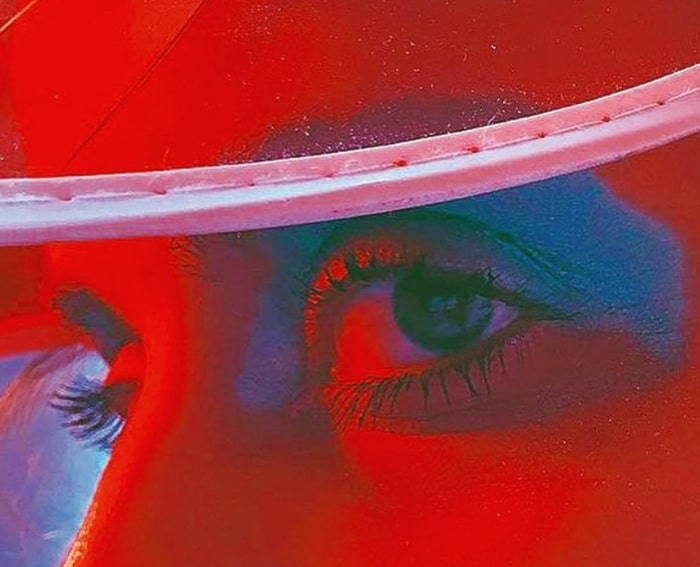Could Chinese livestreamers have the answer to keeping brick and mortar retail stores alive?
Inside a luxury designer store in China, a pretty girl rushes past gushing about a pair of heels she’s obsessed with. She then tries on a flowy dress she took from the mannequin. Surprisingly, she isn’t accompanied by her squad of friends, but by a tripod, her smartphone, and the thousands of fans watching her. Among digital marketers, retailers, and the e-commerce industry there are whispers of when livestream shopping will be picked up in the UK, Europe, and the US. And, well, why wouldn’t it? According to the 2018 Deloitte report, it’s a £422 billion pounds worthy market—and it only started last year! So shouldn’t the question be not when but will live stream shopping be as successful in the west?
A combination of a YouTube clothing haul and the home shopping network, livestream shopping consists of a livestream video of an influencer, or key opinion leaders (KOLs) as they’re called in the East, where they try on clothes, shoes, and other accessories. It can range from Hermès Birkin bags to fast fashion leggings. While they’re modelling and testing out the products, KOLs answer their fans’ questions, give advice on how to style items or talk about the process of how the products are made. The video can last from an hour to as long as six hours or sometimes even more with viewers encouraged to buy items at any time through a purchasing link without even having to leave the livestream.
Since 2018, livestream e-commerce has been taking over the mobile phones and computer screens of Chinese millennials and Gen Zers with some of their own e-commerce giants, such as Alibaba and JD, already making their livestream channels. This explosive phenomenon has not been lost on western eyes, with many of our e-commerce giants, such as Amazon, finally implementing their own channels.
The possibilities of this trend fully integrating western markets could change how we see retail and e-commerce. Livestreaming is fast, convenient, and, most importantly, it’s utterly transparent. Seeing clothes tried on in real-time or watching a jeweller shucking oysters to hand-select pearls for a necklace—this type of behind-the-scenes content makes a product way more valuable when you know who promotes it and where it’s coming from. It cuts away the photoshopped algorithm-biased bullshit and lets you see things as they are. In a time when there have been too many online shopping fails and deception about what products are made of—remember Missguided’s faux fur ending up being cat fur?—livestreaming makes the shopping experience much more transparent, and trustworthy.
From a brick and mortar retail perspective, this may be a new way of customer service for retail professionals as well, because not only will you have to be a good seller in-person, but also in front of a camera to thousands of anons watching. Selling to a live audience is a completely different ballgame compared to talking to someone one-on-one. You have to be bubbly and informative all while trying on as many as 50 to 100 outfits in one video.
As everyone from marketing firms to e-commerce brands is itching to get in on the livestream hype, a few stay sceptical of this supposed success that will blow up in the west. Why? Because of mukbangs. If you don’t know what a mukbang is, it’s a livestream eating trend that went viral a few years ago. The star of the video would usually be an attractive and petite girl who eats an enormous amount of food while talking to fans and describing the dishes. When the trend migrated to the west, it didn’t quite translate as well as its Korean counterpart. The food being ingurgitated didn’t look as appetising and the western mukbangs tried too hard to emulate Korean ones, which made them less authentic.
Western and eastern internet trends, as well as shopping behaviours, are very different. Even the influencer infrastructure doesn’t operate in the same way. In China, the influencer industry, or KOL industry, is a regimented legitimate industry, unlike in the US or the UK, where influencers are seen as independent contractors. KOLs work with agencies under a systemised hierarchy that distinguishes KOLs based on popularity if they’re a celebrity, industry expert or micro-influencer, and their ability to sell.
In such a system, not only is the star involved, but also a team of people working behind the scenes. They have to research popular products and read reviews, test them, and make sure brand partnerships align with the KOL’s image—all before the video goes live. This is because a KOL’s word is considered truth, and promoting a faulty item or something off-brand could mean a ruined reputation, and thousands of pounds lost. They don’t feature an item just to be #sponsored. It’s a daunting work that western influencers might not be able to embrace entirely.
The amount of preparation that is put in front and behind the camera is overwhelming for just one person, from hair and makeup to the strict product vetting process, in addition to keeping cool under pressure, and simultaneously being bubbly and persuasive when selling to hoards of viewers. Refraining from betraying your integrity by promoting off-brand items for easy sponsored money and making sure you keep your reputation intact is another aspect to keep in mind for young livestreamers. This job is not for the faint of heart or cavalier and is not just about being insta famous. For now, it is pure transparency—as it’s live, with many livestreamers scrutinous about who they partner with for their videos. This is an of-the-moment retail trend, but how long will it last? Hopefully, this could be the answer to unifying e-commerce with brick and mortar retail, and bringing trust back into your shopping cart.





